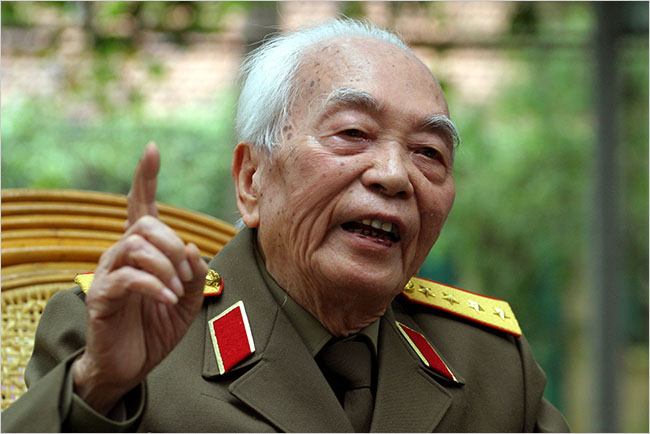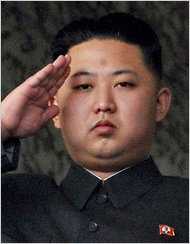In 2015 the National Review ran an interesting story on Vietnam and the 40th anniversary of the fall of Saigon and South Vietnam. The article makes some good points.
There is a German proverb that says: “A great war leaves the country with three armies — an army of cripples, an army of mourners, and an army of thieves.”
For those who believe that the reunited Vietnam that came about as the result of South Vietnam’s defeat and dissolution in 1975, I have news for you. It is not the Communist paradise envisioned by Ho Chi Minh or propagandized by the Communist masters in Hanoi.
In fact, it is rife with corruption, poverty and unequal opportunity. That was made quite apparent to me when I interviewed Dr. Dương Quỳnh Hoa, one of the founders in 1960 of the National Liberation Front, otherwise known as the Viet Cong.
A lifelong Communist, Dr. Hoa told me the revolution she and others fought for was usurped by political elites in Hanoi whose only goals are to hang on to power and enrich themselves. You can find that interview at the following link:
http://ronaldyatesbooks.com/2015/05/incomplete-revolution-viet-cong-founder-money-overshadows-ideals/
I believe Dr. Hoa, was correct in her assessment. And I believe the following article also hits the nail on the head. (Ron Yates)
If South Vietnam Were Free Today
By Josh-Gelernter
National Review
Look at the rest of East Asia and imagine what South Vietnam could have been. April 30 was the 40th anniversary of the fall of Saigon. Forty years after the U.S. abandoned South Vietnam, it’s possible that the most universally accepted lie in American history is that America’s Indochinese intervention was a bad idea.
In most circles it’s a truism that Vietnam was a mistake, and few conservatives see it as a point worth arguing. When Republicans talk about Vietnam, they defend the maligned troops. Occasionally someone points out that the Tet Offensive was an American victory.

Occasionally, My Lai is balanced with the thousands of comparable, and dozens of incomparably worse, Vietcong and North Vietnamese crimes. Rarely does anyone point out that once Creighton Abrams replaced William Westmoreland as head of U.S. Military Assistance Command in Vietnam, we started winning the war — and that by refusing to live up to our commitments after the Paris Accords, Congress snatched South Vietnamese defeat from the jaws of military victory.
Instead of making any of those arguments, though, I’ll point out some facts about modern East Asia. After colonialism collapsed during the epilogue to the Second World War, East Asia started remaking itself.
The United States supported three anti-Communist governments in their fights against Marxist expansion: We supported the Republic of China’s fight against the People’s Republic of China, we supported the Republic of Korea’s fight against the Democratic People’s Republic of Korea, and we supported the Republic of Vietnam against the Democratic Republic of Vietnam. That is, Taiwan against Red China, South Korea against North Korea, and South Vietnam against North Vietnam.
Two of those three republics are now among the most highly developed, most prosperous, and freest countries in the world. One of the principal peacenik criticisms of America’s support for South Vietnam was that the South’s government wasn’t democratic.
That was perfectly true; it was ruled by a military junta with varying degrees of civilian cooperation. However, to quote a contemporary account by anti-war Democratic congressman Leo Ryan, “Although South Vietnam is no bastion of democratic principles, the worst charges of widespread repression of fundamental human rights are overblown. There is a vocal, operative political opposition and press. It is not doubted that there are some political prisoners, but neither the populace as a whole nor the opposition political leaders appear to be living in fear of government repression.”
Happily, free markets tend to push unfree countries in the right direction.
Like the Republic of Vietnam, the Republics of China and Korea also saw periods of military dictatorship. South Korea was governed by General Park Chung-Hee from his coup in 1961 until his assassination in 1979. His administration was blighted by political repression, but he built South Korea’s economy into a powerhouse, which became the foundation for the thriving democracy that South Korea has today.

Likewise, the Republic of China was ruled, under martial law, by Generalissimo Chiang Kai-shek until his death in 1975. Like Park’s, Chiang’s rule was stained by repression, but it also created enormous prosperity and — under the general’s son, Chiang Ching-kuo — transitioned into an entirely free, republican democracy. Taiwan is — shamefully — not recognized by the U.N. as a sovereign state. However, using the U.N.’s Human Development Index formula (which, in essence, calculates standard of living), it is the 21st most developed nation in the world. South Korea is 15th.
Both countries outrank such European stalwarts as Austria, Belgium, Luxembourg, Italy, and Finland; South Korea also edges out Japan, France, and Israel. Despite having few natural resources, Taiwan has the 19th highest GDP per capita in the world: $45,854 a year, which exceeds those of Canada, Denmark, Belgium, France, the U.K., Japan, and Italy.
Similarly light on natural resources, South Korea is in 30th place, ahead of New Zealand, Spain, and both halves of the former Czechoslovakia. Compare that to their Communist counterparts: Red China’s GDP per capita is 70 spots lower than Taiwan’s, behind Turkmenistan, Algeria, Libya, the Maldives, and Iraq. North Korea is almost off the bottom of the scale, behind Zimbabwe, Rwanda, and Haiti.
In human-development terms, Red China is also 70 spots lower than Taiwan, behind Tunisia, Peru, Grenada, and Azerbaijan. North Korea’s human development is, for obvious reasons, impossible to calculate accurately. And compare the American-backed, free Asian republics to Vietnam: Ho Chi Minh’s paradise is 122nd in human development, behind Syria, Iraq, Moldova, and Gabon, and in 126th place in GDP per capita, behind the Republic of the Congo, Swaziland, Dominica, and Albania. Perhaps this is just the inevitable result of traditional Communist purges of land owners, teachers, and intellectuals. Much more important than economics, look at their relative freedom. Taiwan and South Korea have free elections, independent judiciaries, freedom of the press, freedom of religion, freedom of assembly, and freedom of speech.
Neither the People’s Republic of China nor the Democratic People’s Republic of Korea have any of these. Nor, of course, does Vietnam, whose Communist party continues to control “elections” and the courts, and continues to arrest and torture political and religious dissidents. Imagine what the Republic of Vietnam — South Vietnam — would be like today.
Vietnam is the 13th most populous country in the world, with more than 90 million inhabitants. Half of those people, more or less, could be living in the same sort of freedom and prosperity enjoyed by South Koreans and Taiwanese. (Perhaps even greater prosperity, because — unlike Taiwan or South Korea — Vietnam has tremendous natural resources, in the form of offshore petroleum deposits.)
Hindsight, as they say, is 20/20 — and so, entirely independent of the circumstances of the Sixties and Seventies, in 2015 it is glaringly obvious that fighting for South Vietnam was the right thing to do. And it’s time more people said so — our politicians and teachers, in particular, particularly because Vietnam veterans are getting old. And because, 40 years after the fall of Saigon, we should all get a lesson in the catastrophic costs of America’s refusing to fight the good fight.
Read more at: http://www.nationalreview.com/article/417468/if-south-vietnam-were-free-today-josh-gelernter

